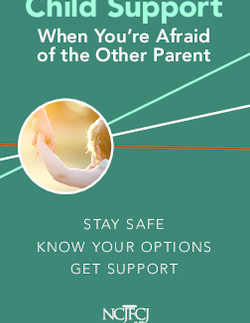2019: A Year in Review
The Resource Center on Domestic Violence: Child Protection and Custody (RCDV:CPC) had an exciting and productive 2019. The Resource Center provides training and technical assistance to professionals seeking to improve outcomes on child protection cases that involve domestic violence, while engaging in policy reform in those areas.
Training and Technical Assistance
The RCDV:CPC trained 1,100 people at conference workshops and webinars and provided over 170 individuals with technical assistance topics such as the impact of the Family First on families experiencing domestic violence, the Indian Child Welfare Act (ICWA) and overrepresentation of families of color in the child protection system, dealing with trauma in child protection mediation, practical implications of interstate custody laws on survivors’ decisions to flee violence, creating safe parenting plans in custody cases involving domestic violence, updates on recent domestic violence legislation, and safely seeking child support in cases with domestic violence.
Greenbook Anniversary Celebration
In 2019, the Resource Center celebrated the twentieth anniversary of Effective Intervention in Domestic Violence and Child Maltreatment: Guidelines for Policy and Practice, which became known as the Greenbook because of its green cover. A special issue of the Juvenile and Family Court Journal focused on the Greenbook will be published on December 11 and feature articles highlighting the impact of the Greenbook nationally, locally, and even internationally, as well as the work that remains. One article examines the social science foundations of the Greenbook and the research done since its publication. Another reviews the evolution of federal policies in light of the Greenbook, noting many groundbreaking effects and work still to be done to improve outcomes for children in child welfare cases involving domestic violence. A judge from Santa Clara narrates that community’s experience with implementing Greenbook recommendations, tailoring them for local needs and resources to transform practice. Five advocates from three Greenbook communities provide their perspectives on the Greenbook initiative, including past implementation work, current impact, and work to be done going forward. An article describes how the Greenbook can help inform strategies to reduce the overrepresentation of families of color in child welfare. The Greenbook’s impact on policies and practices related to perpetrator accountability is explored in the final article, discussing how working with fathers can improve domestic violence-informed practice, exemplified by the Safe & Together Model.
Meeting at the Intersections
In collaboration with the Family Violence Prevention Services Office, Futures Without Violence, the National Center on Domestic Violence, Trauma, and Mental Health, and UJIMA: The National Center on Violence Against Women in the Black Community, the RCDV: CPC continued a multi-year project entitled Meeting at the Intersections: Reimagining the Domestic Violence and Child Welfare Systems’ Response to Families in Crisis (The Intersections Project). The Intersections Project was designed with a structure and a process for identifying and amplifying the work of emergent leaders of color who apply a cultural lens to their work with families at the intersections of family violence and child welfare to build capacity among child welfare and domestic violence systems stakeholders. In August 2019, the Project held its first cohort convening, bringing together representatives from three sites in a safe space for frank conversations, healing, and relationship building. Over the next two years, the cohorts will continue to develop their partnerships to help these families improve outcomes for children.
Custody
The Resource Center continued its multi-year partnership with the Battered Women’s Justice Project (BWJP) focused on working with domestic violence coalitions and allied organizations to develop a national custody strategy to better address the needs of survivors involved in domestic violence-related custody issues. The Coalition Advocates and Attorneys Network Conference in August 2019 included a post-conference meeting to allow the partners to meet with domestic violence coalitions, offering an opportunity for them to discuss both their urgent and long-term technical assistance needs in this area. Together with regular web-based and conference calls, the partners have begun to develop resources to address these needs.
Self-Represented Litigants
Since most domestic violence survivors lack an attorney in their divorce or custody case, they must represent themselves. To help them, the Resource Center added two new resources to its existing Self-Represented Litigant Guide (SRL Guide) series. The first focuses on tips and considerations for creating safe and workable parenting plans. The second is a child support palm card booklet, providing guidance on safely seeking child support. Each resource was the topic of accompanying webinars. A newly created webpage now hosts all of the Resource Center’s SRL resources, including the SRL Guides (in English and Spanish), webinar recordings, and other resources for survivors. Please visit https://rcdvcpc.org/resources/self-represented-litigants-series.html to see them all.
Publications
The Resource Center published two technical assistance briefs in 2019. One on resiliency in children exposed to maltreatment and domestic violence provides an overview of the research on this crucial topic is the first in the series that will be published over the next year. The other focuses on the use of data in domestic violence work, returning to a theme discussed in previous briefs, and describes how an organization providing legal information to self-represented litigants can augment its existing data to incorporate client voices, measure the impact of its services, and determine what additional help is needed.
RCDV:CPC staff reviewed upwards of 500 pieces of legislation to develop four state-specific “charts,” highlighting more than 100 pieces of domestic violence legislation from 27 states. Topics included statutes governing child custody and child welfare, protection orders, domestic violence crimes and criminal procedure, domestic violence programs, and task forces, and miscellaneous protections for survivors in areas such as housing, employment, address confidentiality, and public benefits.
Domestic Violence Awareness Month
Download Blog as PDF




